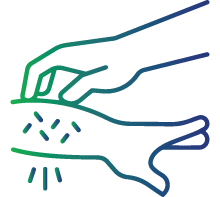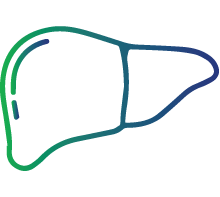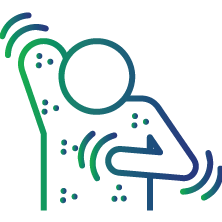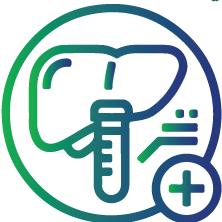
Anti-Mitochondrial Antibody - AMA, IFA
Anti-Mitochondrial Antibody - AMA, IFA
Mitochondria are referred to as the energy centers of the cells in our body. The anti-mitochondrial antibodies are blood proteins produced by our immune system when our body attempts to attack its own organs and cells mistaking the healthy cells as alien or foreign entities.
An anti-mitochondrial antibody test detects quantities of these proteins in the blood. It is most commonly used in the diagnosis of primary biliary cholangitis (PBC), an autoimmune illness
Symptoms of primary biliary cholangitis:
Primary biliary cholangitis shows symptoms such as:

Itching

Jaundice

Fatigue

Abdominal pain

Enlarged liver
Who should get tested?
An anti-mitochondrial antibody test is advised in individuals who exhibit:

Family history of liver conditions

Signs and symptoms of primary biliary cholangitis

Other autoimmune conditions

Abnormal liver function test results
Test preparation
No special preparations are required for the anti-mitochondrial antibody test. It is a simple blood test in which your healthcare provider will collect a few mL of your blood sample in a sterile test tube by inserting a small needle in a vein in your arm.
Please tell your healthcare provider if you are taking any medications. At times, certain medications you take can affect the accuracy of the test results
Interpretation of the Test Results
Normal range: <35 IU/mL (International Units per mL)
Test results are usually given as normal or abnormal.
Normal test results – It indicates that there were no anti-mitochondrial antibodies detected in the blood sample and the individual has no autoimmune primary biliary cholangitis.
Abnormal test results – It indicates that there were anti-mitochondrial antibodies detected in the blood sample and the individual is suspected to have autoimmune primary biliary cholangitis. Levels greater than 35 IU/mL suggest a higher risk of the disease in an individual. The higher the levels, the worse the condition
FAQs
What is the turnaround time (TAT) of Anti-mitochondrial antibody test?
Although, the test results of anti-mitochondrial antibody test are available within 2 – 3 working days after the sample collection, it could also take a little longer at times
Are there any risks associated with anti-mitochondrial antibody test?
No, there are no potential risks associated with anti-mitochondrial antibody test. It is a simple blood test that may involve negligible risk such as feeling a slight sting or a bruise at the site of needle insertion. It usually resolves within a few minutes to a couple of hours. Rarely, the site can become infected
Is it possible that one gets a false positive result for anti-mitochondrial antibody test?
It is unlikely to get a false positive result if there is no ailment/illness. However, it is suspected that primary biliary cholangitis may develop over time in individuals who show positive anti mitochondrial antibodies without any symptoms of liver illnesses. Further, abnormal results are occasionally associated with other related autoimmune illnesses and liver problems
What are the other diseases that may cause higher levels of anti-mitochondrial antibodies in our blood?
Higher levels of anti-mitochondrial antibodies are generally associated with primary biliary cholangitis. In addition to this, it may also be observed in conditions such as hepatitis, syphilis, tuberculosis, heart diseases, and other chronic liver diseases
Are there any limitations to the anti-mitochondrial antibody test?
Yes, some limitations of anti-mitochondrial antibody test include:
· Immune complexes in an individual’s blood may cause an increased level of non-specific binding and produce false-positive results.
Results from anti mitochondrial antibody tests should be studied along with clinical findings and other serological test reports

